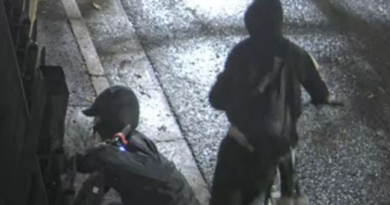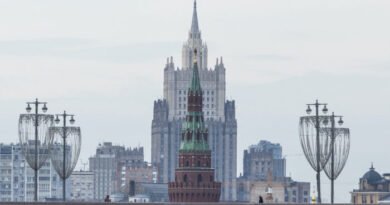NATO Will Not Get Involved in War if Ukraine Uses Western Weapons on Russian Soil, says Stoltenberg
According to NATO Secretary General Jens Stoltenberg, some allies supplying weapons to Ukraine have not placed restrictions on how Ukraine may use the weapons.
During a European Union (EU) meeting on May 28, Stoltenberg stated that the use of weapons supplied by Western allies against targets within Russia would not involve NATO or its members in the conflict.
Stoltenberg emphasized that delivering equipment to Ukraine does not mean NATO is a party to the conflict. He made this statement before meeting with the EU’s defense ministers.
NATO allies have the right to support Ukraine without being part of the conflict because they are helping Ukraine uphold its right to self-defense. Stoltenberg noted that some allies supplying weapons to Ukraine have not imposed restrictions on how Ukraine should use the weapons.
He clarified that these decisions are national, and supplying weapons does not involve NATO in the conflict.
Stoltenberg also mentioned that NATO is coordinating the support of military equipment and training to Ukraine. The alliance is working with allies, many of whom are EU members, to enhance the delivery of ammunition and air defense systems, particularly advanced ones like the Patriot systems.
According to the Army Technology website, the Patriot missile system is a long-range, all-altitude, all-weather air defense system used to counter tactical ballistic missiles, cruise missiles, and advanced aircraft. It is employed in the United States and by over a dozen other countries.
Josep Borrell, the EU’s foreign affairs chief, stated after the meeting that lifting restrictions on Western weapons used by Ukrainian forces to target military objects in Russia is a decision for each EU member to make. Member states are responsible for their decisions, whether they choose to lift the restrictions or not. Borrell noted that some EU member states have shifted their stance from being against it to considering it appropriate in recent weeks.
The conflict between Russia and Ukraine since 2022 has triggered a significant deterioration in relations between Russia and the West, comparable to the Cuban Missile Crisis in 1962.
Right to Self-Defense
Stoltenberg emphasized that under international law, Ukraine has the right to self-defense because it has been invaded by Russia. This right includes targeting legitimate military objectives inside Russia and beyond Ukrainian territory.
He highlighted the challenges for Ukraine in defending itself in the Kharkiv region near the Ukrainian-Russian border if they cannot strike military targets on the other side of the border.

In recent months, Ukraine has conducted almost daily drone and artillery attacks from Kharkiv on residential areas of Belgorod, Russia, resulting in warnings from Moscow.
Kharkiv continues to face regular missile and artillery strikes from Russia. Ukrainian President Volodymyr Zelenskyy requested the deployment of two U.S.-made Patriot missile batteries in Kharkiv during a meeting with U.S. Secretary of State Antony Blinken in May.
A spokesperson from the U.S. State Department stated at a press conference on May 28 that their policy does not support strikes outside Ukraine’s borders.
Peace Talks
Russian President Vladimir Putin mentioned on May 24 that peace talks with Ukraine should resume, highlighting that Russia would only engage with legitimate leaders in Kyiv. He emphasized that talks should be based on common sense rather than ultimatums.
Stoltenberg asserted that the war could end quickly if the aggressor stopped attacking Ukraine. Instead, Russia has intensified the conflict. He emphasized that NATO’s experience shows the importance of military strength in negotiation outcomes.
Stoltenberg concluded that to deter Russian aggression, NATO must avoid escalating the conflict into a full-scale war with Russia by refraining from sending troops into Ukraine. The alliance has bolstered its military presence in NATO’s Eastern flank in Baltic countries, Romania, and Poland to prevent the situation from escalating.
Reuters and Adam Morrow contributed to this report.





